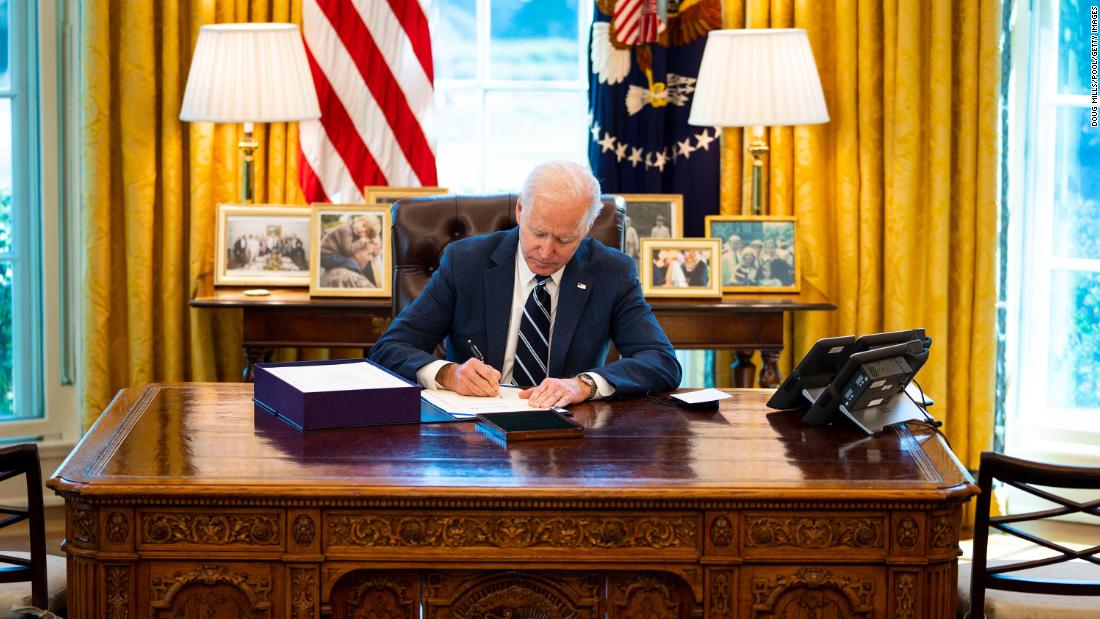The restriction, which was added by Senate Democrats, prompted the Ohio Attorney General to file a lawsuit on Wednesday and his Republican colleagues to write an angry letter to Treasury Secretary Janet Yellen.
The rule can be applied until 2024, which is the deadline for states to use their aid.
The Treasury Department said on Thursday that humanitarian aid is not intended for tax cuts, but that states are free to use other funds to cut rates.
Democrats tried to increase the $ 150 billion pot provided in the stimulus deal approved a year ago, but Republicans successfully blocked it while controlling the Senate in 2020.
Claim of unconstitutional tax mandate
Ohio Attorney General Dave Yost filed for an injunction with the Southern Ohio District Court in the United States, seeking to block the application of what he calls a “fiscal mandate”, saying it is unconstitutional and exceeds the Congress authority.
“The tax mandate, therefore, gives states a choice: they may have the extremely necessary federal funds or their sovereign authority to define state tax policy. But they cannot have both, ”says the motion. “In our current economic crisis, this is not a choice. It is a metaphorical ‘weapon in the head’.”
Meanwhile, a coalition of 21 Republican attorney generals – led by Georgia, Arizona and West Virginia – wrote to Treasury Secretary Janet Yellen on Tuesday, raising concerns about the provision, particularly the ban on compensating “indirectly” cuts of taxes and the list of prohibited measures.
The letter included a series of fiscal measures that states are currently considering, which officials fear may conflict with the relief law. They include increasing the standard deduction in Georgia, enacting tax credits in Indiana and reducing income tax in Montana.
Attorneys general asked Yellen to confirm that the aid package at most prevents states from using the funds expressly for direct tax cuts, and not for the purposes listed.
What states can do, according to the Treasury
The Treasury Department said the law does not prohibit states from cutting taxes or requires them to pay their aid if they do.
“In other words, states are free to make political decisions to cut taxes – they simply cannot use pandemic relief funds to pay for these cuts,” said an agency spokesman.
Still, the Biden government made it clear earlier this week that assistance is aimed at preventing states from firing more employees – especially essential workers. State and local governments have eliminated nearly 1.4 million jobs in the past 12 months.
“The original purpose of state and local funding was to keep police, firefighters and other essential employees at work and employees, and had no intention of cutting taxes,” said Jen Psaki, White House press secretary, at a press conference Monday market.
The Treasury Department’s response did not satisfy Yost.
“This is like saying ‘but you are free to keep your wallet, the choice is yours’, right after the assailant says ‘your wallet or your life’,” said the attorney general on Thursday.
